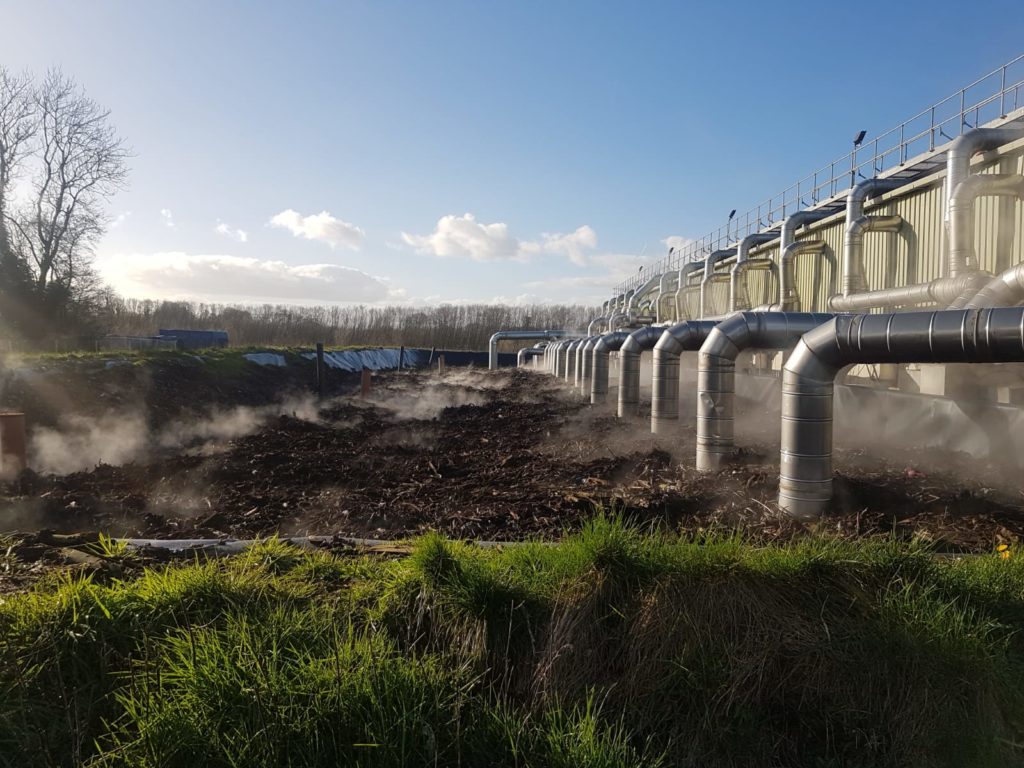Littleton Composting Facility

The Beauparc Utility Group recently acquired Littleton Composting Ltd. in Tipperary. Littleton Composting is the biggest in-vessel composting facility in the Republic of Ireland, processing 45,000 tonnes per annum. Opened in 2010, the facility accepts non-hazardous biodegradable wastes from which it produces Class 1 quality compost, a valuable soil improver.
The facility predominately accepts typical ‘brown bin’ waste which includes vegetable peelings, tea bags, grass cuttings and food waste. Commercial food waste as well as smaller quantities of biodegradable residues, such as from food and drink manufacturing are also treated. Due to its central location, waste is delivered to the facility from Dublin, Cork, Waterford and Limerick as well as from local waste collectors operating in Tipperary.
The process can be summarised as follows; Waste acceptance, blending, primary composting, screening, pasteurisation, maturation and storage/dispatch. The facility operates under an EPA licence and an approval from the Department of Agriculture with all activities carried out within an enclosed building with air extraction and biofiltration. In total the process takes 5-7 weeks from when the material enters the building to when it leaves as a finished product. Each stage is highly controlled to ensure consistency, product quality, and adherence to procedures agreed with the department of agriculture. Extensive monitoring and testing is carried out in order to ensure product quality and to verify pasteurisation.
The compost produced is an EPA Class 1 quality product. It is used by local tillage farmers as an organic fertiliser and soil improver. The compost contains significant quantities of the main nutrients (N, P, K) as well as micro-nutrients. The main benefit of the application of compost for soil however is the very high organic matter. Organic matter has been shown to have multiple benefits including improved soil texture, root development, and reduced nutrient leaching. With soil organic matter declining, particularly in soils under continuous tillage, the use of organic fertilisers is a significant commercial and environmental benefit.
This facility provides Beauparc with a secure and ethical outlet for the ‘brown bin’ waste it collects which enables us to continue on our journey to sustainability while also contributing to the circular economy. Without facilities such as this one, government policy and EU legislation to reduce biodegradable wastes going to landfill could not be achieved.
